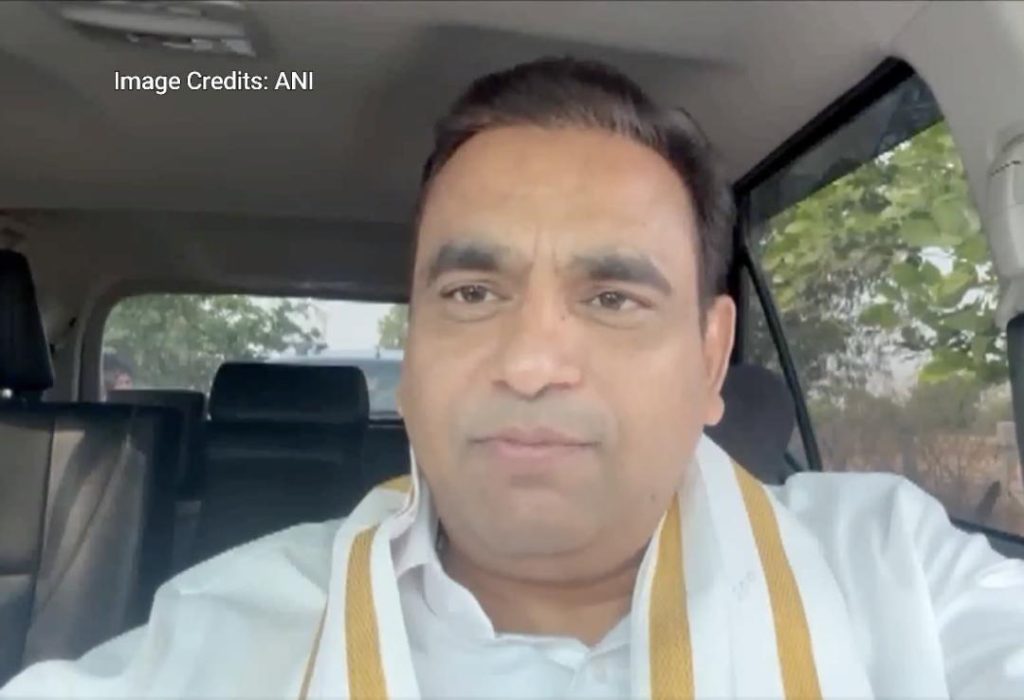
Title: Happy to see Rahul Gandhi’s dream being fulfilled: Chamala on caste census
The Indian government’s recent decision to include a caste census in the nationwide census has been widely welcomed by many, and Congress MP Kiran Kumar Chamala is no exception. In a recent statement, Chamala expressed his gratitude towards the Centre for taking this initiative, crediting Rahul Gandhi, the former Congress president, for recognizing the need for a caste census.
Chamala’s comments came in the backdrop of the Bharat Jodo Yatra, a 3,500-kilometer-long march undertaken by Rahul Gandhi to connect with the people of India and understand their struggles. During the yatra, Gandhi emphasized the importance of a caste census, citing its significance in addressing the social and economic disparities faced by different communities.
The Congress MP attributed the Centre’s decision to include a caste census to the efforts of Rahul Gandhi, who, he said, recognized the need for such a census during his yatra. “Rahul Gandhi, who conducted the Bharat Jodo Yatra, noticed the need for a caste census,” Chamala said. “We’re thankful to Narendra Modi ji for taking this initiative forward.”
Chamala’s statement has sparked a debate among political circles, with many questioning the timing and motives behind the Centre’s decision. Some have pointed out that the BJP-led government has been hesitant to conduct a caste census in the past, citing concerns about the potential political fallout. Others have accused the government of trying to divide the electorate along caste lines, a charge that the Centre has vehemently denied.
Despite the controversy surrounding the decision, Chamala’s comments highlight the significance of the caste census in addressing the complex social and economic issues faced by different communities in India. The census, which is expected to provide a comprehensive picture of the country’s social and economic fabric, is seen as a crucial step towards ensuring equal opportunities and rights for all.
The caste census, which is expected to be conducted along with the 2021 census, aims to capture the socioeconomic details of the population, including their caste, religion, and occupation. The data collected from the census will be used to plan and implement targeted policies and programs aimed at addressing the social and economic disparities faced by different communities.
The decision to include a caste census has been welcomed by many, including social activists and civil society organizations. “The caste census is a long-overdue initiative that will help us understand the complex social and economic issues faced by different communities,” said Kavita Krishnan, a prominent social activist. “It’s a step towards ensuring equal opportunities and rights for all.”
The caste census is also seen as a significant step towards addressing the social and economic disparities faced by marginalized communities, including the Scheduled Castes, Scheduled Tribes, and Other Backward Classes. These communities have historically been excluded from the political and economic mainstream, and the caste census is seen as a way to bring them into the fold.
In conclusion, the decision to include a caste census in the nationwide census is a significant step towards addressing the complex social and economic issues faced by different communities in India. The initiative is credited to Rahul Gandhi, who recognized the need for a caste census during his Bharat Jodo Yatra. The caste census is expected to provide a comprehensive picture of the country’s social and economic fabric, and will be used to plan and implement targeted policies and programs aimed at ensuring equal opportunities and rights for all.
News Source: https://x.com/ANI/status/1917542830530002978






